
Find Help
More Items From Ergsy search
-
Can children develop chronic fatigue syndrome?
Relevance: 100%
-

Is chronic fatigue syndrome contagious?
Relevance: 95%
-
What is chronic fatigue syndrome?
Relevance: 91%
-
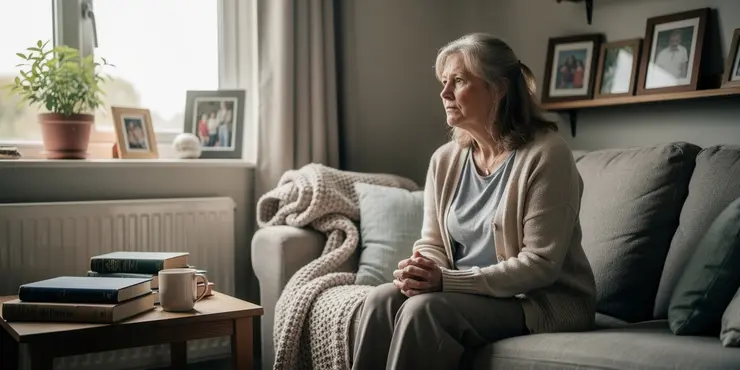
What causes chronic fatigue syndrome?
Relevance: 89%
-
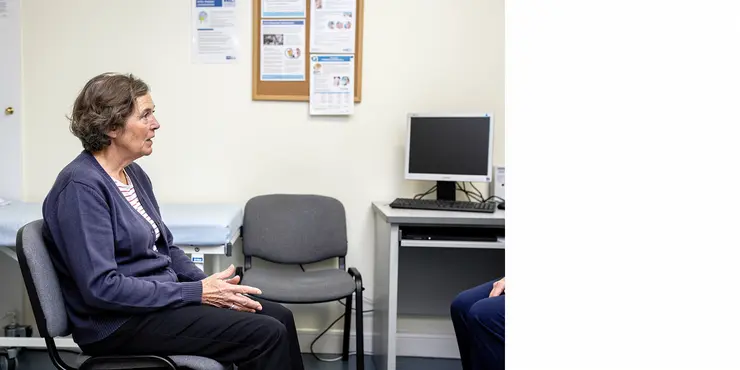
Are there psychological aspects to chronic fatigue syndrome?
Relevance: 85%
-
Is chronic fatigue syndrome a mental illness?
Relevance: 84%
-

Who is at risk of developing chronic fatigue syndrome?
Relevance: 81%
-
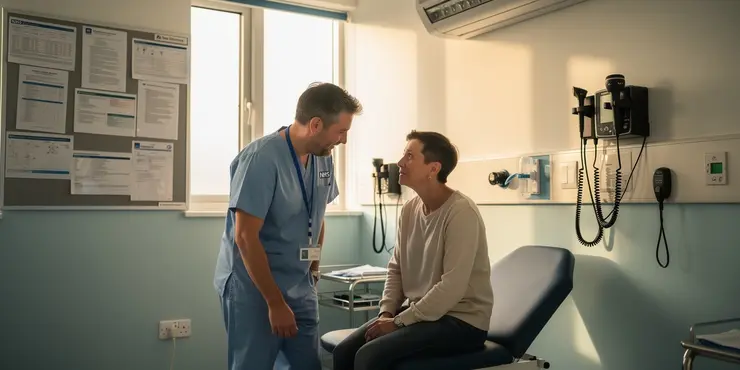
What role do infections play in chronic fatigue syndrome?
Relevance: 77%
-
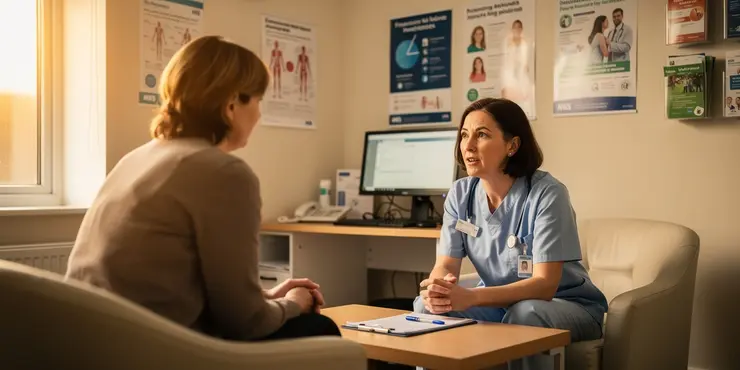
How is chronic fatigue syndrome treated?
Relevance: 72%
-

Is there a cure for chronic fatigue syndrome?
Relevance: 71%
-

Myalgic encephalomyelitis or chronic fatigue syndrome (ME/CFS) | NHS
Relevance: 70%
-
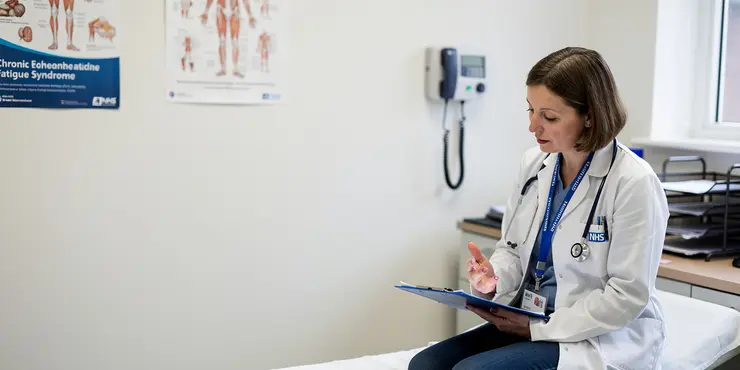
How is chronic fatigue syndrome diagnosed?
Relevance: 67%
-

Can chronic fatigue syndrome be managed with lifestyle changes?
Relevance: 59%
-
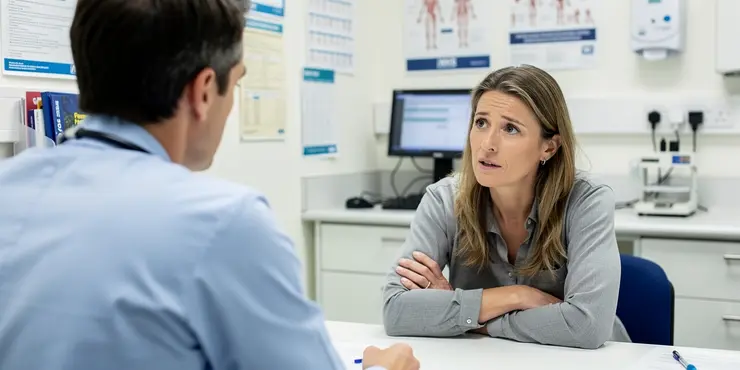
How does CFS differ from regular fatigue?
Relevance: 45%
-
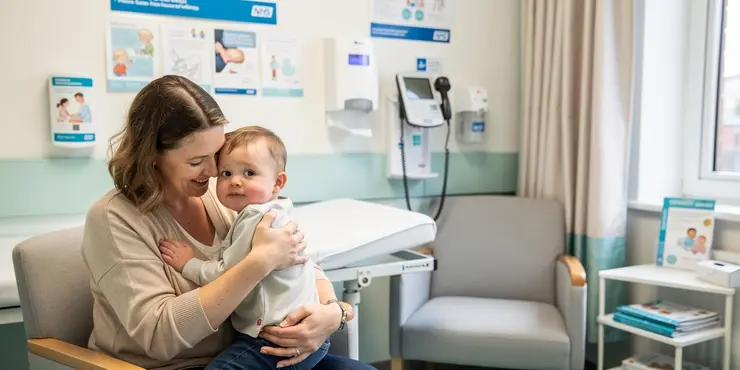
Having a child with Down's syndrome | NHS
Relevance: 37%
-
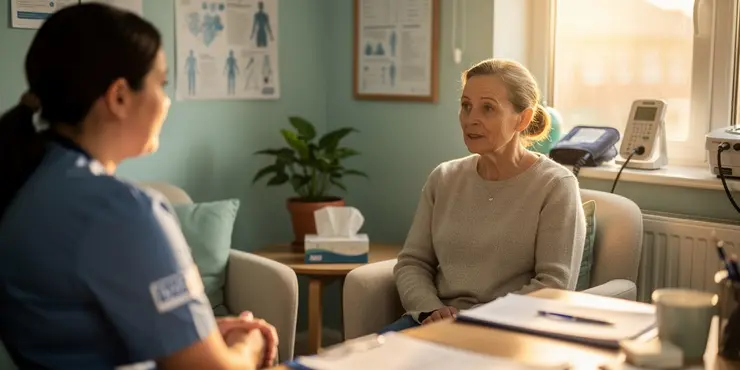
What is Cushing's syndrome?
Relevance: 36%
-

What is irritable bowel syndrome (IBS)?
Relevance: 36%
-
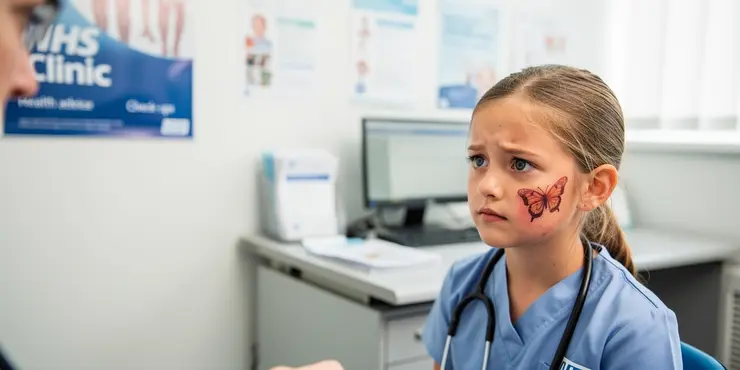
What are the common symptoms of lupus in children?
Relevance: 35%
-
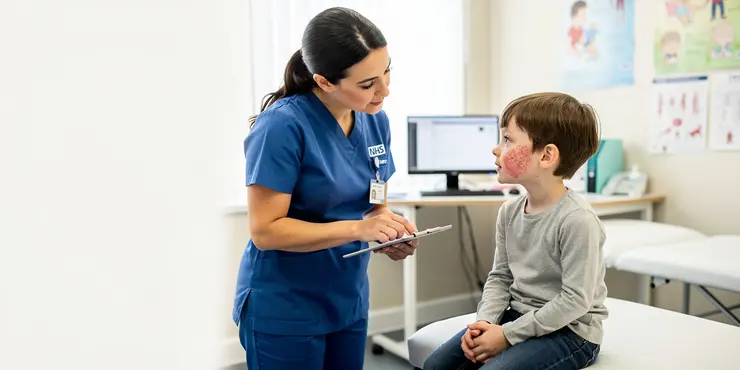
Lupus in children | NHS
Relevance: 34%
-
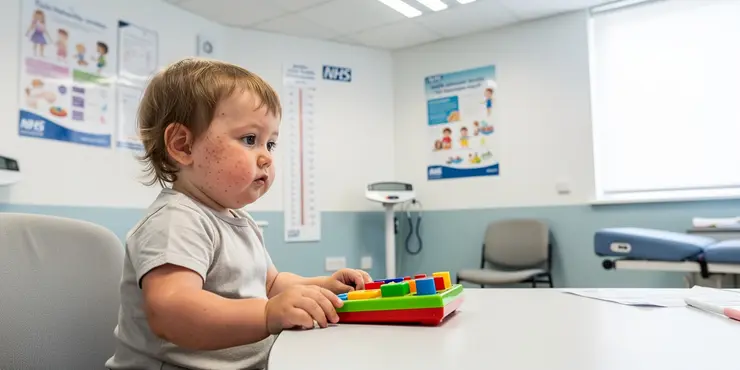
Prader-Willi Syndrome | NHS
Relevance: 34%
-
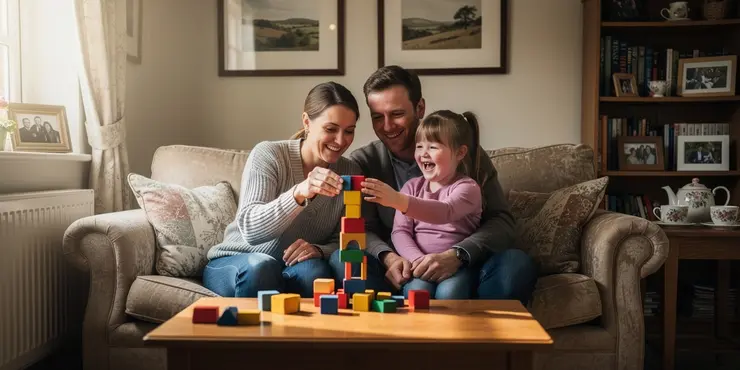
Down's syndrome: Emily's story | NHS
Relevance: 34%
-

What is congenital rubella syndrome?
Relevance: 34%
-
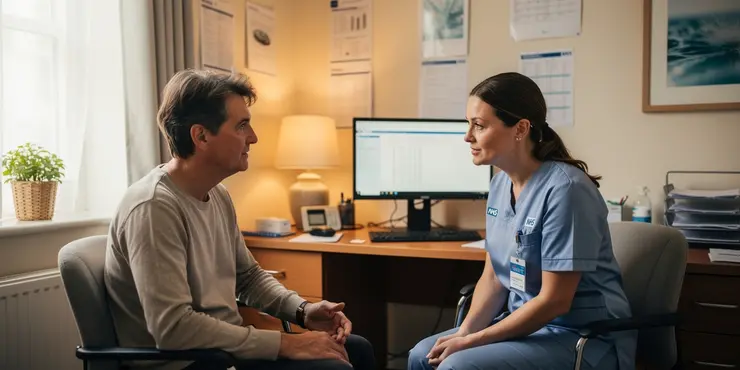
Munchausen's syndrome | NHS
Relevance: 33%
-
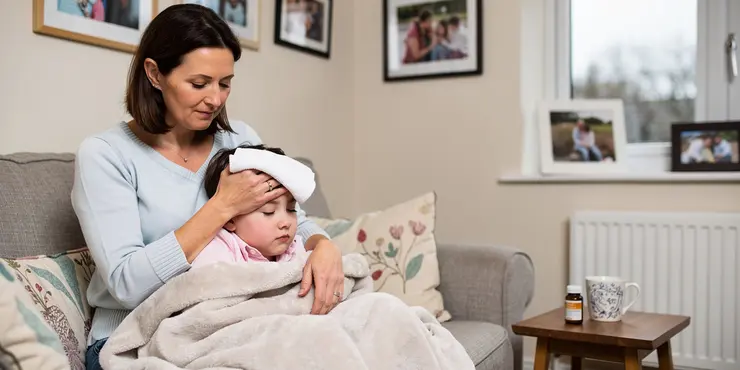
Which medication should be avoided for children with fevers?
Relevance: 32%
-
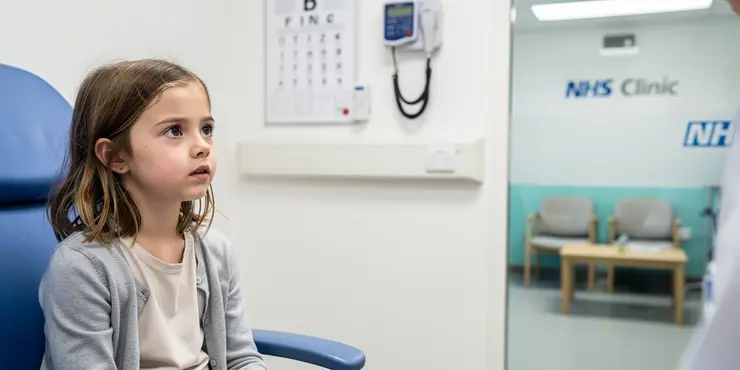
What is lupus in children?
Relevance: 32%
-

Can fatigue result in dangerous driving?
Relevance: 32%
-

Carpal Tunnel Syndrome
Relevance: 32%
-
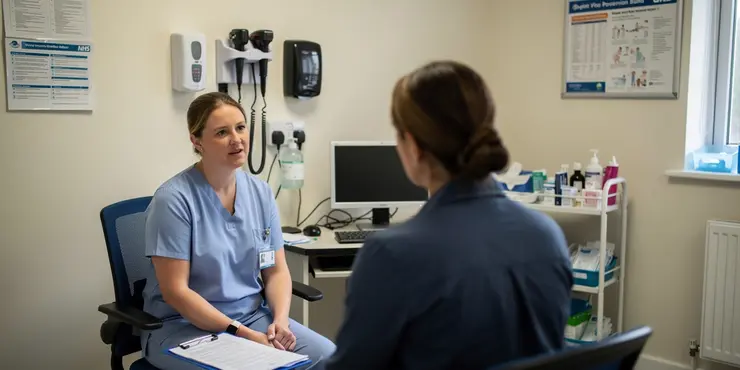
What is post-treatment Lyme disease syndrome (PTLDS)?
Relevance: 32%
-
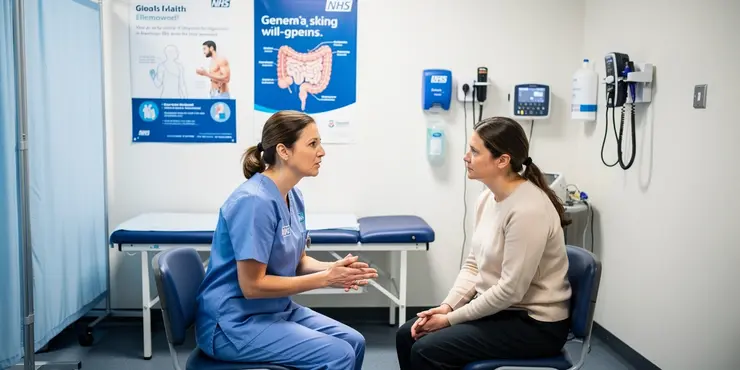
Symptoms of irritable bowel syndrome (IBS)
Relevance: 31%
-
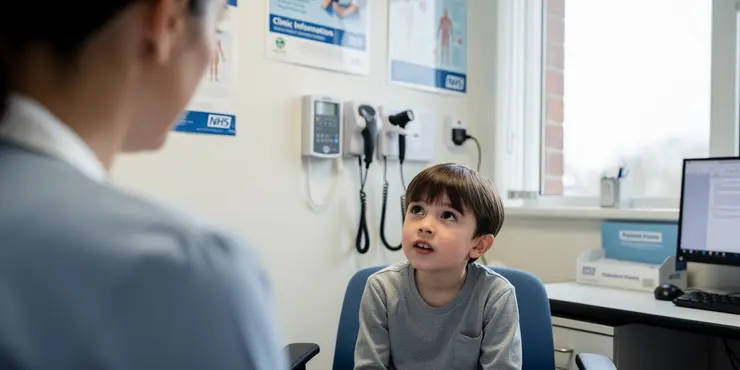
Can children develop Crohn's disease?
Relevance: 31%
-
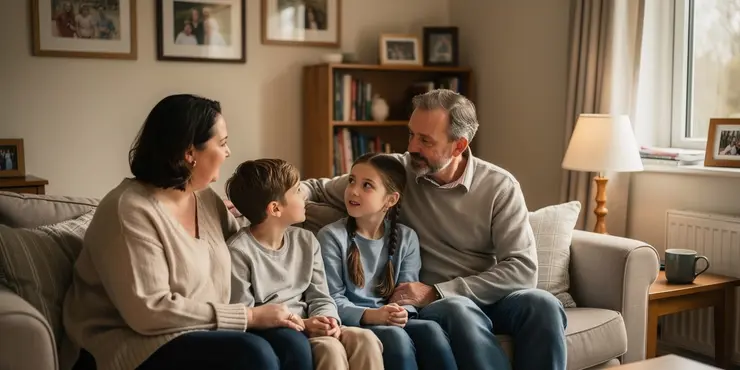
Managing Chronic Illness Within the Family
Relevance: 31%
-
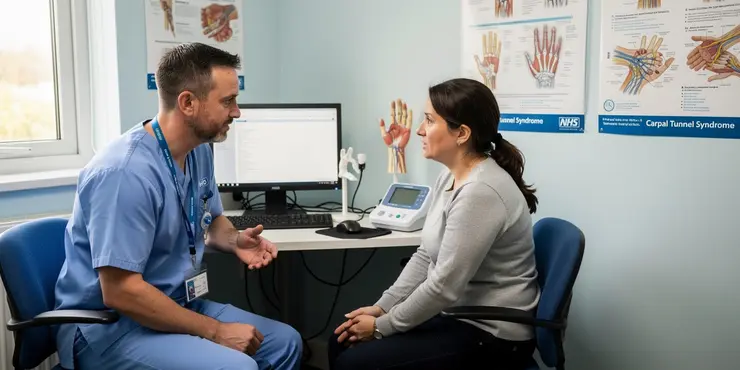
What causes Carpal Tunnel Syndrome?
Relevance: 30%
-

What is complex sleep apnea syndrome?
Relevance: 30%
-
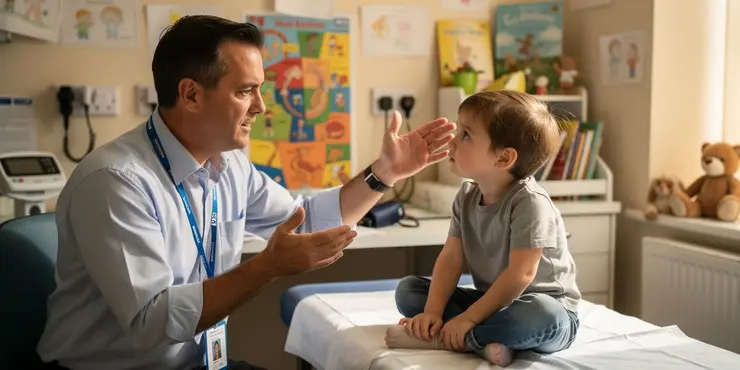
How is lupus diagnosed in children?
Relevance: 30%
-
Can weight loss medications cause fatigue?
Relevance: 30%
-
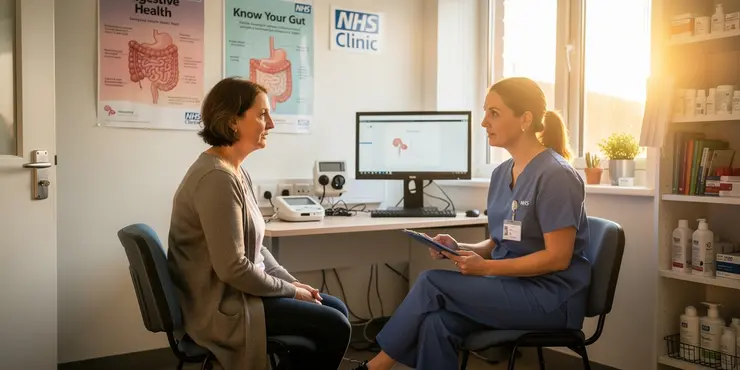
About irritable bowel syndrome (IBS)
Relevance: 30%
-

Turner syndrome: Beyond the classic XO phenotype
Relevance: 30%
-

What is Carpal Tunnel Syndrome (CTS)?
Relevance: 30%
-

Having a child with Edwards' syndrome (trisomy 18) | NHS
Relevance: 30%
-
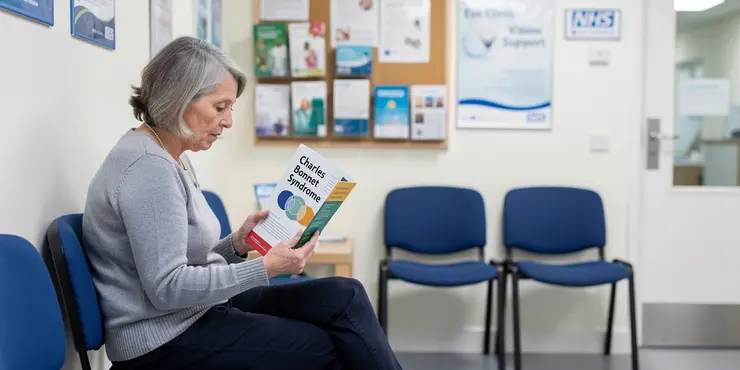
Charles Bonnet Syndrome
Relevance: 29%
Understanding Chronic Fatigue Syndrome (CFS)
Chronic Fatigue Syndrome (CFS), also known as Myalgic Encephalomyelitis (ME), is a complex and debilitating disorder characterized by profound fatigue that doesn't improve with rest. While CFS is more commonly diagnosed in adults, children and adolescents can also develop this condition. The precise cause of CFS is unknown, but it often follows an infection or significant stress, suggesting a possible viral or immune-related origin.
Symptoms in Children
Children with CFS often experience persistent fatigue that reduces their ability to engage in usual activities. This fatigue is not alleviated by rest and can be exacerbated by physical or mental exertion. Other symptoms may include muscle and joint pain, headaches, sore throat, tender lymph nodes, difficulties with memory and concentration, and unrefreshing sleep. Each child's experience with CFS can vary widely in terms of symptom type and severity.
Diagnosis and Challenges
Diagnosing CFS in children can be challenging, as symptoms overlap with those of other conditions such as depression, anxiety, or other health disorders. No specific test exists for CFS, so diagnosis often involves ruling out other potential causes of symptoms. It is important for parents to seek a comprehensive evaluation by a healthcare professional experienced in pediatric CFS if they suspect their child may be affected.
Treatment and Management
There is no cure for CFS, but children can benefit from a combination of therapies tailored to their individual needs. Management strategies may include cognitive behavioral therapy (CBT) to address the psychological impact, and graded exercise therapy (GET) to help improve physical capabilities without exacerbating symptoms. However, it is crucial to customize any exercise program carefully, as overexertion can worsen the condition. Medications may sometimes be used to manage specific symptoms like pain or sleep disturbances.
Supporting Children with CFS
Families play a critical role in supporting children with CFS. Parents should work closely with healthcare providers to implement a comprehensive care plan. Schools may also need to make accommodations, such as modified schedules or rest breaks, to help affected children manage their daily responsibilities. Emotional support from family and peers is equally important, as living with a chronic illness can be isolating and stressful.
Conclusion
While CFS is less common in children than in adults, it is nonetheless a significant condition that requires attention and care. Understanding the symptoms and seeking early intervention can improve outcomes and quality of life for affected children. Future research is needed to better understand the causes of CFS in children and to develop more effective treatments.
Understanding Chronic Fatigue Syndrome (CFS)
Chronic Fatigue Syndrome (CFS) is also called Myalgic Encephalomyelitis (ME). It is a health problem that makes people very tired. Rest does not make it better. Both adults and children can get CFS. Doctors do not know what causes CFS, but it might start after getting sick or after a lot of stress. It might be linked to a virus or the immune system.
Symptoms in Children
Children with CFS feel very tired and find it hard to do usual activities. Rest does not help them feel better. Exercise or thinking hard can make them feel worse. Other symptoms include pain in muscles and joints, headaches, sore throat, swollen lymph nodes, trouble with memory and focus, and not feeling refreshed after sleeping. Each child may have different symptoms, and some may be more serious than others.
Diagnosis and Challenges
Finding out if a child has CFS can be hard because its symptoms are like those of other problems, like being sad or anxious. There is no simple test for CFS. Doctors check for other possible causes first. It is important for parents to talk to a doctor who knows about CFS in children if they think their child might have it.
Treatment and Management
There is no cure for CFS, but treatments can help. Children can have different types of help to make them feel better. Therapy can help them deal with feelings, and special exercises can help them stay active without making them feel worse. It is important to plan exercise carefully. Medicine can help with pain or sleep problems.
Supporting Children with CFS
Families are very important for helping children with CFS. Parents should work with doctors to make a care plan. Schools may need to help by giving children time to rest or changing schedules. Family and friends should give support because having a long-term illness can be lonely and upsetting.
Conclusion
CFS is not as common in children as in adults, but it is still important. Knowing the signs and getting help early can improve a child's life. More research is needed to understand why children get CFS and to find better treatments.
Frequently Asked Questions
What is chronic fatigue syndrome (CFS)?
Chronic fatigue syndrome (CFS), also known as myalgic encephalomyelitis (ME), is a complex disorder characterized by extreme fatigue that doesn’t improve with rest and can worsen with physical or mental activity.
Can children develop chronic fatigue syndrome?
Yes, children and adolescents can develop chronic fatigue syndrome, although it is more commonly diagnosed in adults.
What are the common symptoms of CFS in children?
Symptoms in children can include severe fatigue, sleep problems, concentration difficulties, headaches, muscle and joint pain, and sore throat, among others.
What causes chronic fatigue syndrome in children?
The exact cause of CFS is unknown, but it may involve a combination of genetic, environmental, infectious, and psychological factors.
How is CFS diagnosed in children?
Diagnosis is typically made by excluding other conditions with similar symptoms and is based on the child's medical history, reported symptoms, and a physical examination.
Is there a specific test for diagnosing CFS?
No, there is no specific test for CFS. Diagnosis is made by ruling out other possible causes of the symptoms.
What is the prevalence of CFS in children?
Chronic fatigue syndrome is less common in children than in adults, but it can affect children of all ages, with onset often occurring during adolescence.
Can CFS in children be treated?
While there is no cure for CFS, symptoms can be managed through a combination of lifestyle changes, medications, and therapies like cognitive behavioral therapy (CBT) and graded exercise therapy (GET).
How does CFS affect a child's daily life?
CFS can significantly impact a child's ability to attend school, participate in extracurricular activities, and maintain social relationships due to persistent fatigue and other symptoms.
Are there risk factors for developing CFS in children?
Potential risk factors include a family history of CFS, previous infections, stress, and psychological factors, although the specific risk factors are not well understood.
Is CFS in children different from CFS in adults?
The core symptoms of CFS are similar in children and adults, but children may face unique challenges related to school and development, and the condition might present differently.
Can lifestyle adjustments help children with CFS?
Yes, lifestyle adjustments such as a regular sleep schedule, balanced diet, and pacing activities can help manage symptoms in children with CFS.
Is CFS in children a lifelong condition?
The course of CFS can vary. Some children recover over time, while others may continue to experience symptoms into adulthood.
What role does physical activity play in managing CFS?
Graded exercise therapy (GET) can sometimes help improve symptoms by gradually increasing physical activity, but it must be carefully tailored to avoid overexertion.
How can schools support children with CFS?
Schools can support children with CFS by providing accommodations such as flexible scheduling, rest periods, and adjustments to physical education requirements.
What psychological support is available for children with CFS?
Therapies such as cognitive behavioral therapy (CBT) can help children and their families cope with the emotional and mental challenges of living with CFS.
What should parents do if they suspect their child has CFS?
Parents should consult a healthcare professional for an evaluation and possible referral to a specialist for a thorough assessment.
Can dietary changes help manage CFS symptoms?
While there is no specific diet to cure CFS, maintaining balanced nutrition can support overall health and energy levels.
Is CFS contagious?
No, CFS is not contagious. It cannot be spread from person to person.
How can peer relationships be affected by CFS?
Children with CFS may have difficulty maintaining friendships due to fatigue and activity limitations, which can affect their social development and emotional well-being.
What is long-term tiredness?
Chronic fatigue syndrome (CFS) is also called myalgic encephalomyelitis (ME). It is a sickness that makes you feel very, very tired all the time. Resting doesn't help, and doing things like playing or thinking can make it worse.
Can kids get really tired all the time?
Sometimes kids can feel very tired for a long time. This is called chronic fatigue syndrome. It means they don't have much energy.
If a kid feels tired all the time, it's good to talk to someone who can help, like a doctor.
Yes, kids and teenagers can have chronic fatigue syndrome, but it is more often found in adults.
What signs show a child might have CFS?
Sometimes kids feel very tired and can't do as much. This might be CFS (Chronic Fatigue Syndrome). Here are some signs:
- Tired all the time, even after sleeping
- Trouble thinking or remembering things
- Sore throat
- Headaches
- Dizzy or feeling sick
- Muscles or joints hurt
If you think a child has these signs, talk to a doctor. It helps to keep a diary of feelings. Reading with a parent or helper can make it easier to understand the symptoms. Using pictures or drawings can also help explain how they feel.
Children can have different symptoms. These can be feeling very tired, having trouble sleeping, finding it hard to pay attention, having headaches, having pain in muscles and joints, and having a sore throat.
Some things that might help are:
- Rest and sleep
- Taking breaks when needed
- Talking to a doctor
- Using a planner to remember things
What makes children feel very tired for a long time?
We do not know exactly what causes CFS. It might be a mix of your genes, where you live, germs, and how you feel inside.
How do doctors find out if a child has CFS?
Doctors find out what the problem is by making sure it's not something else. They look at how the child has been feeling and acting. They also talk about any symptoms and do a check-up to see how the child is doing.
Is there a special test to find out if someone has CFS?
No, there is no special test to find out if you have CFS. Doctors find out if you have CFS by checking for other things that might be causing the symptoms first.
How many children have CFS?
Children do not get chronic fatigue syndrome as often as adults do. But kids of any age can have it. It usually starts when kids are teenagers.
Can children with CFS get better?
There is no way to totally fix CFS. But you can feel better by making changes in your life, using medicines, and trying special treatments. Some good treatments are talking therapy (called CBT) and easy exercise plans (called GET).
How does CFS change a child's day-to-day life?
CFS, or Chronic Fatigue Syndrome, can make kids feel very tired. Here’s how it can change their daily life:
- Feeling Tired: Kids might feel sleepy and have no energy.
- School and Play: They might find it hard to go to school or play with friends.
- Memory and Focus: They might forget things easily or find it tough to pay attention.
- Feeling Unwell: They might have headaches or sore joints.
To help, kids can:
- Get lots of sleep and rest.
- Take small breaks during the day.
- Do activities that make them happy and relaxed.
If you know a child with CFS, be kind and understand that they might need extra support and care.
CFS makes kids feel very tired. Because of this, it can be hard for them to go to school, join in after-school activities, and play with friends.
What can make kids more likely to get CFS?
Things that might make you more at risk are having family members with CFS, having had infections before, being stressed, and your feelings and thoughts. But people are not completely sure what makes someone get CFS.
Is CFS in kids different from CFS in grown-ups?
CFS means feeling very tired all the time. Do kids and grown-ups feel this tiredness in the same way?
Kids might feel tired and not want to play as much.
Grown-ups might feel tired and find it hard to work.
Both need help to feel better. Doctors can help. Talking about feelings can help too.
Ask for help if feeling tired all the time.
CFS is a sickness that makes people very tired. Kids and grown-ups both feel this way. But kids can have special problems because they have to go to school and grow up.
Can changing daily habits help kids with CFS?
Some kids have CFS, which makes them very tired. Changing some daily habits might help them feel better.
- Make sure they get enough rest. Having a regular bedtime can help.
- Doing light exercise like walking or stretching can be good, but don't do too much.
- Eating healthy foods and drinking enough water can make them feel stronger.
- Try to keep stress low. Doing calming activities like drawing or listening to music can help.
Ask a doctor for more ideas. They can give advice just for your child. There are also apps for kids that remind them when to rest and eat well. You can try using those too.
Yes, making some changes in daily habits can help kids who feel really tired all the time, called CFS.
Things That Can Help:
- Going to bed at the same time every night.
- Eating healthy foods.
- Doing activities at a steady pace, not too fast or too slow.
These changes can make them feel better.
Helpful Tips:
- Use a bedtime routine, like reading a story, to help relax before sleep.
- Ask an adult to help plan meals with fruits and vegetables.
- Use a calendar or chart to plan your day so you don’t do too much at once.
Does CFS in children last forever?
CFS stands for Chronic Fatigue Syndrome. It means being very tired for a long time. It can affect children too.
Most children get better. But it can take a long time. Some children feel tired for a long time, even years.
Doctors and nurses can help. Family and teachers can help too.
Talking to friends and family can make you feel better. It is important to rest and not do too much at once. Doing a little bit each day can help you get better.
CFS can be different for each child. Some kids get better as time goes on. But some might still feel unwell even when they are grown-ups.
How does moving your body help with CFS?
CFS means Chronic Fatigue Syndrome. It makes you very tired.
Moving your body, like walking or stretching, can help you feel a bit better. Start slow and gentle.
Sometimes, doing too much can make you more tired. So, listen to your body and rest when needed.
Tools like calming music or videos that teach easy exercises can help you move gently.
Graded exercise therapy, or GET, is a way to help you feel better by slowly doing more physical activity. It is important to take it slow so you don’t do too much. Everyone’s plan is different, and it helps if a doctor or therapist makes one just for you.
How can schools help kids with CFS?
Schools can help kids with CFS (Chronic Fatigue Syndrome) by making learning easier.
Here’s how they can do it:
- Rest Breaks: Give kids time to rest during the day.
- Shorter Lessons: Keep lessons shorter so they are easier to follow.
- Extra Help: Have a teacher or assistant help with classwork.
- Quiet Spaces: Make sure there are quiet places to take a break.
- Online Learning: Let kids do some schoolwork from home if they need to.
- Talk to Parents: Work with parents to understand what each child needs.
Using pictures and videos can also help kids learn better.
Schools can help kids with CFS by giving them special support. This can include letting them have a flexible school schedule, break times to rest, and changes to gym class rules.
What help is there for children with CFS?
Children with CFS (Chronic Fatigue Syndrome) can get help for their feelings and thoughts. This is called psychological support. It can make them feel better.
Here are some ways to get help:
- Talk to a counselor: A counselor is someone who listens and helps children understand their feelings.
- Join a support group: In a group, children can meet others with CFS and share their feelings.
- Mindfulness and relaxation: These are activities that help children feel calm and relaxed.
Parents and teachers can also help by talking and listening to the child. They can make a plan together for more support if needed.
Talking therapy like CBT can help kids and their families feel better when they find it hard to live with CFS.
What should parents do if they think their child has CFS?
If you think your child might have CFS (Chronic Fatigue Syndrome), here are some simple steps to help:
1. **Talk to a Doctor:** Take your child to see a doctor. The doctor can help check if your child has CFS.
2. **Write Down Symptoms:** Keep a notebook and write down how your child feels each day. This will help you remember details when you talk to the doctor.
3. **Use Simple Tools:** Use a calendar to track your child’s symptoms. You can also use pictures or stickers to show how your child feels.
4. **Ask for Help:** Talk to teachers or school counselors. They can help support your child at school.
5. **Find Support Groups:** Look for groups where parents talk about CFS. You can find ideas and support there.
CFS means feeling very tired and not getting better with rest. Always talk to a doctor if you are worried about your child.
Parents should talk to a doctor. The doctor can check and might send them to another special doctor for more help.
Can changing what you eat help with CFS symptoms?
People with CFS, which stands for Chronic Fatigue Syndrome, often feel very tired. Changing your diet might help you feel better.
- Eat lots of fruits and vegetables. They are healthy and can give you energy.
- Drink water instead of sugary drinks.
- Try eating small meals more often instead of big meals. This can help with feeling tired.
If you need help, ask a doctor or a dietitian. They can tell you more about what to eat.
Reading tools like audiobooks or a reading pen can also help understand information better.
There isn't a special diet that will make CFS go away. But eating healthy foods can help you feel better and have more energy.
Can you catch CFS from someone else?
No, you cannot catch CFS, also known as Chronic Fatigue Syndrome, from another person. It's not like a cold or the flu.
If you have questions or need help understanding, you can:
- Ask someone you trust.
- Use pictures to help you learn.
- Find videos that explain CFS.
No, you cannot catch CFS from someone else. CFS does not spread between people.
How does CFS change friendships?
CFS can make you very tired. This can make it harder to play with friends or go to school.
Friends might not understand why you are tired. You can tell them about CFS.
Ask a grown-up or teacher for help. They can use books or pictures to help explain CFS to your friends.
Children who have CFS get very tired. This makes it hard for them to keep friends. They can't always join in activities. This can make them feel sad or lonely.
Useful Links
This website offers general information and is not a substitute for professional advice.
Always seek guidance from qualified professionals.
If you have any medical concerns or need urgent help, contact a healthcare professional or emergency services immediately.
Some of this content was generated with AI assistance. We’ve done our best to keep it accurate, helpful, and human-friendly.
- Ergsy carfully checks the information in the videos we provide here.
- Videos shown by Youtube after a video has completed, have NOT been reviewed by ERGSY.
- To view, click the arrow in centre of video.
- Most of the videos you find here will have subtitles and/or closed captions available.
- You may need to turn these on, and choose your preferred language.
- Go to the video you'd like to watch.
- If closed captions (CC) are available, settings will be visible on the bottom right of the video player.
- To turn on Captions, click settings .
- To turn off Captions, click settings again.
More Items From Ergsy search
-
Can children develop chronic fatigue syndrome?
Relevance: 100%
-

Is chronic fatigue syndrome contagious?
Relevance: 95%
-
What is chronic fatigue syndrome?
Relevance: 91%
-

What causes chronic fatigue syndrome?
Relevance: 89%
-

Are there psychological aspects to chronic fatigue syndrome?
Relevance: 85%
-
Is chronic fatigue syndrome a mental illness?
Relevance: 84%
-

Who is at risk of developing chronic fatigue syndrome?
Relevance: 81%
-

What role do infections play in chronic fatigue syndrome?
Relevance: 77%
-

How is chronic fatigue syndrome treated?
Relevance: 72%
-

Is there a cure for chronic fatigue syndrome?
Relevance: 71%
-

Myalgic encephalomyelitis or chronic fatigue syndrome (ME/CFS) | NHS
Relevance: 70%
-

How is chronic fatigue syndrome diagnosed?
Relevance: 67%
-

Can chronic fatigue syndrome be managed with lifestyle changes?
Relevance: 59%
-

How does CFS differ from regular fatigue?
Relevance: 45%
-

Having a child with Down's syndrome | NHS
Relevance: 37%
-

What is Cushing's syndrome?
Relevance: 36%
-

What is irritable bowel syndrome (IBS)?
Relevance: 36%
-

What are the common symptoms of lupus in children?
Relevance: 35%
-

Lupus in children | NHS
Relevance: 34%
-

Prader-Willi Syndrome | NHS
Relevance: 34%
-

Down's syndrome: Emily's story | NHS
Relevance: 34%
-

What is congenital rubella syndrome?
Relevance: 34%
-

Munchausen's syndrome | NHS
Relevance: 33%
-

Which medication should be avoided for children with fevers?
Relevance: 32%
-

What is lupus in children?
Relevance: 32%
-

Can fatigue result in dangerous driving?
Relevance: 32%
-

Carpal Tunnel Syndrome
Relevance: 32%
-

What is post-treatment Lyme disease syndrome (PTLDS)?
Relevance: 32%
-

Symptoms of irritable bowel syndrome (IBS)
Relevance: 31%
-

Can children develop Crohn's disease?
Relevance: 31%
-

Managing Chronic Illness Within the Family
Relevance: 31%
-

What causes Carpal Tunnel Syndrome?
Relevance: 30%
-

What is complex sleep apnea syndrome?
Relevance: 30%
-

How is lupus diagnosed in children?
Relevance: 30%
-
Can weight loss medications cause fatigue?
Relevance: 30%
-

About irritable bowel syndrome (IBS)
Relevance: 30%
-

Turner syndrome: Beyond the classic XO phenotype
Relevance: 30%
-

What is Carpal Tunnel Syndrome (CTS)?
Relevance: 30%
-

Having a child with Edwards' syndrome (trisomy 18) | NHS
Relevance: 30%
-

Charles Bonnet Syndrome
Relevance: 29%


